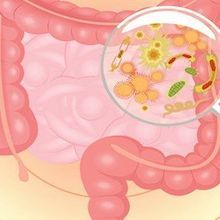allergy

Prenatal Inflammation Makes Mice Susceptible to Asthma
Shelby Bradford, PhD | Aug 20, 2024 | 4 min read
Maternal immune responses during mice gestation led to a hyperactive population of innate-like immune cells in offspring that contributed to altered lung composition and function.

Clostridia to the Rescue
Shelby Bradford, PhD | Mar 27, 2024 | 3 min read
Some commensal bacteria help shore up intestinal walls in mice, which can prevent food allergies.

Shielding From Allergies: It’s Not Just About Microbes
Mariella Bodemeier Loayza Careaga, PhD | Feb 7, 2024 | 4 min read
Clean and dirty mice respond similarly to allergens, challenging the idea that reduced microbial exposure is the primary cause behind the uptick in allergies.

Training the Immune System to Fight Chronic Diseases
The Scientist | Dec 21, 2022 | 1 min read
Learn how researchers analyze and engineer antibodies to better understand antibody function and development for disease therapeutics.

Return of the Worms
Catherine Offord | Dec 1, 2021 | 10+ min read
Immunologists and parasitologists are working to revive the idea that helminths, and more specifically the molecules they secrete, could help treat allergies and autoimmune disease.

Infographic: How Worms that Reside in the Gut Could Influence Health
Catherine Offord | Dec 1, 2021 | 3 min read
Research in animals and people supports a range of mechanisms by which the parasites affect physiology and immune responses.

New Models Improve Long-Term Grass Pollen Forecasts
Asher Jones | Mar 26, 2021 | 5 min read
More-accurate predictions of the severity of an upcoming grass pollen season based on rainfall and temperature could help allergy sufferers manage their symptoms.

Severe Allergic Reactions to COVID-19 Vaccine Are Rare: CDC
Lisa Winter | Jan 7, 2021 | 3 min read
The majority of people experiencing anaphylaxis had a history of allergic reactions, a report by the agency finds.

FDA Clears Genetic Modification in Pigs for Biomedicine and Food
Catherine Offord | Dec 15, 2020 | 2 min read
The decision, which concerns the removal of a sugar molecule on the surface of cells in a line of domestic pigs, marks the first time an approval has been granted for both purposes simultaneously.

Chemosensory Cells in the Nose Play a Role in Allergic Reactions
Abby Olena, PhD | Jan 17, 2020 | 3 min read
In mice, a group of nasal epithelial cells called brush cells release pro-inflammatory signals in response to allergens.

The Influence of Soil on Immune Health
Jef Akst | Jan 8, 2020 | 6 min read
Recent work in humans and mice highlights how exposure to environmental microbes helps protect against allergies and other inflammatory diseases.

An Alternative Route to Anesthesia-Induced Anaphylaxis
Ruth Williams | Jul 10, 2019 | 3 min read
A study in patients identifies a nontraditional immune pathway that can cause a severe reaction to anesthetic drugs.

Could Manipulating the Microbiome Treat Food Allergies?
Jef Akst | Jul 9, 2019 | 5 min read
As evidence grows that gut bacteria play roles in the development and persistence of food allergies, researchers begin to explore microbe-based interventions.

Pioneering Immunologist Teruko Ishizaka Dies
Ashley Yeager | Jun 14, 2019 | 2 min read
With her husband, she studied allergic reactions and identified antibodies that set off itching, wheezing, and rashes.

Peanut Allergy Immunotherapy Increases Anaphylaxis Risk: Study
Kerry Grens | Apr 26, 2019 | 2 min read
Although the oral treatment seems to work, an analysis of the results from 12 clinical trials finds kids who got an immunotherapy have a greater rate of serious reactions.

Salt Could Play a Role in Allergies
Abby Olena, PhD | Feb 20, 2019 | 3 min read
High salt concentrations are present in the affected skin of people with atopic dermatitis and promote the differentiation of the T helper cells involved in the development of allergic diseases.

Number of Pets in Infancy Tied to Lower Allergy Risk
Shawna Williams | Dec 19, 2018 | 1 min read
A study finds the effect is dose-dependent, with each additional pet further lowering the odds of developing allergies.

How Do Infant Immune Systems Learn to Tolerate Gut Bacteria?
Diana Kwon | Jan 10, 2018 | 6 min read
Scientists are beginning to unravel the ways in which we develop a healthy relationship with the bugs in our bodies.

Peanut Allergy Treatment Works Long Term
Jef Akst | Aug 17, 2017 | 1 min read
Four years after taking a probiotic and peanut protein for 18 months, two-thirds of children in a small clinical trial can eat peanuts with no health issues.
